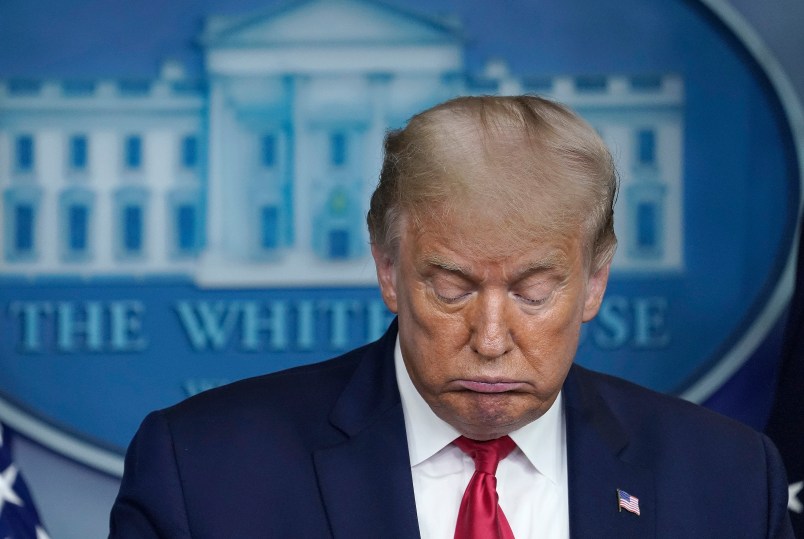A three-judge panel in New York ruled Thursday to block President Donald Trump’s attempt to exclude undocumented immigrants from the census apportionment count, which allocates how many House seats each state gets.
In a July memo, Trump tried to break with years of precedent and possibly the Constitution in what some called a transparent attempt to decrease the power of immigrant-heavy states.
The ruling is likely to be appealed, and will go next to the Supreme Court.
In their order, the judges declare the memo an “unlawful exercise of the authority granted to the President by statute” and enjoin defendants from giving Commerce Secretary Wilbur Ross information for his report on the number of undocumented immigrants.
Ross was tasked by the President with figuring out a count of the population minus undocumented immigrants to enable their exclusion from the apportionment database.
The judges found Trump’s memo to be a “violation of Congress’s delegation of its constitutional responsibility to count the whole number of persons in each State and to apportion members of the House of Representatives among the States according to their respective numbers,” they wrote.
The panel declined to address the question of the memo’s constitutionality, though the plaintiffs argued that the policy runs afoul of the 14th Amendment, which mandates “counting the whole number of persons in each state.”
“Because the President exceeded the authority granted to him by Congress by statute, we need not, and do not, reach the overlapping, albeit distinct, question of whether the Presidential Memorandum constitutes a violation of the Constitution itself,” the judges wrote.
They did, though, give a dismissive treatment to one of the administration’s arguments, saying it flies in the face of the Constitution.
“With neither text nor history on their side, the only thing Defendants have remaining is their assertion that excluding illegal aliens from the apportionment base is ‘more consonant with the principles of representative democracy underpinning our system of Government,'” they wrote. But, they added, those principals are “irrelevant” in the face of the fact that the constitution imbues Congress, and not the executive, with apportionment powers.
The panel also endorsed the plaintiffs’ argument that the memo could have the practical effect of “chilling” undocumented immigrants’ participation in the census process by validating fear that the information they provide could be turned against them.
“In short, the record supports a conclusion that the Presidential Memorandum has created, and is likely to create, widespread confusion among illegal aliens and others as to whether they should participate in the census, a confusion which has obvious deleterious effects on their participation rate,” they wrote.
“The Memorandum’s chilling effect on census participation will likely also degrade the census data, harming state and local governments that rely on the data to carry out their public functions,” they added.
Trump’s memo prompted eight legal challenges across the country.
The stakes are high electorally. For states with relatively large populations of undocumented immigrants such as California, Texas and Florida, the Pew Research Center has estimated that each would receive one fewer seat after the 2020 census under Trump’s apportionment policy. States with relatively few undocumented immigrants, like Alabama, Minnesota and Ohio, would each keep a seat they would have otherwise lost after the 2020 census.
Additional legal challenges were lodged when the administration abruptly, and on the heels of Trump’s apportionment memo, decided to cut the census data collection timeline in half. If the census proceeds on its original timeline, there’s a chance that the Biden administration could take over the process before apportionment is completed, risking that the new President could overturn Trump’s policy — if the courts don’t take care of that first.
Read the order here:



